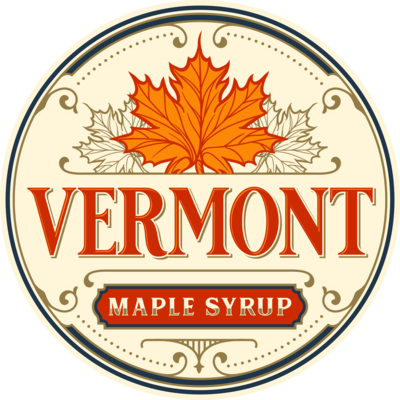Maple syrup is one of nature's many wonders. Nothing can quite compare to the unique taste and sweetness of a golden jar of authentic maple syrup. Those who have had the opportunity to maple syrup fresh know the mouth-watering experience is unlike any other in the culinary world.

Maple syrup is innately a very versatile, naturally derived culinary product – although most famously known for its pancake and waffle topping potential, it can also be used as a healthy alternative to sugar and sweeteners. However, the beloved taste and sought-after versatility of authentic maple syrups often spell trouble for dedicated maple fans. Because of the desirability of real maple syrup, fraudulent companies have developed a keen eye for creating maple syrup replicas – tricking consumers into buying harmful synthetic syrup substitutes.
Because real maple syrup requires skilled farmers to make, table syrup companies cut corners while making their products. Cutting corners for cost usually results in a hazardous imitation product, not healthy for consumers. Here are the top differences between real and table syrup and why you should stick to the real version.
Real maple syrup contains one ingredient
It shouldn't be surprising that real maple syrup contains only one ingredient: maple syrup. In simple terms, maple syrup is the boiled-down tree sap of a maple tree. Boiling tree sap from a maple tree evaporates most of the water content. The finished product, therefore, derives its sweet taste from the concentrated leftover sugars. Seeing a "maple syrup" bottle with ingredients other than maple syrup is a red flag all buyers should be aware of.
Table syrup contains corn syrup
If you're ever unsure about the authenticity of a maple product, check the label. Almost all imitation syrups contain corn syrup, a highly processed derivative of corn starch. Excessive corn syrup intake may lead to serious health issues, including obesity, insulin resistance, and metabolic syndrome (1). Corn syrup has a similar texture to real maple syrup and is inexpensive to produce, making it a perfect imitation substitute. However, the attractive upfront cost is not worth the disastrous health side effects. It is a good procedure to avoid any syrups labeled "table syrup" or "pancake syrup," as companies use these terms to trick consumers into buying cheap alternatives.
Table syrup contains high levels of artificial additives
Imitation syrup uses synthetic ingredients to attempt to imitate real maple syrup. These ingredients include but are not limited to caramel color, natural and artificial flavoring, added sugar, and preservatives. Compounds in caramel color have been found to be potential carcinogens (2), and added cane sugar can contribute to obesity and heart disease. Clearly, taking the risk and using dangerous table syrup is not worth it.
Real maple syrup and table syrup don't taste the same
Anyone who has tried a bottle of real maple syrup will know that there is no substitute for its unique taste. Real maple syrup can range anywhere from a deep, rich taste to a light buttery flavor. The taste of maple syrup varies from farm to farm, too, each having its own individual taste. Table syrup, on the other hand, has a strong and noticeable artificial flavor. Some describe it as being "too sweet" or "too strong." Real maple syrup also has beneficial minerals like manganese, calcium, potassium, and zinc, which all contribute to its unparalleled taste.
What should you choose?
When deciding to pick up a bottle of real or table syrup, we think the choice is rather simple. By choosing real maple syrup, buyers guarantee themselves a tasty, natural culinary product free from artificial ingredients. Real maple syrup, with its unrivaled taste and quality, brings more to the table than its fraudulent counterpart, literally.
***
The best organic Vermont maple syrup, maple sugar, and maple candy you will taste. In classy, nostalgic packaging that puts Vermont first. Organic, pure small-batch maple syrup and maple sugar — tapped, collected, and made available from our 1,200-acre farm in the small town of Guilford, Vermont, USA.










